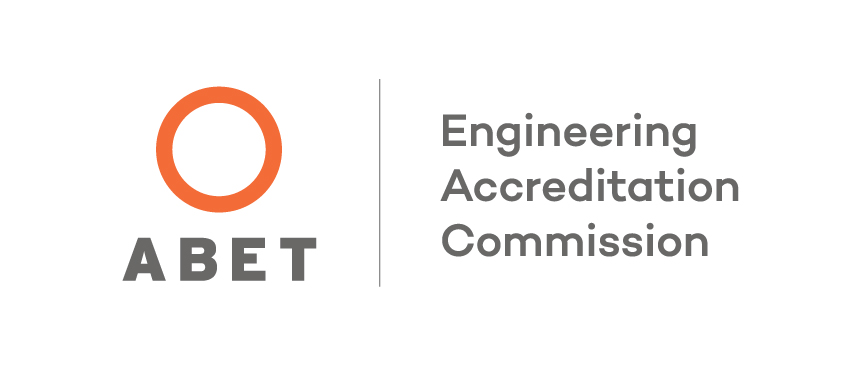Undergraduate Accreditation

The Bachelor of Science in Chemical Engineering at the University of Puerto Rico-Mayagüez is accredited by the Engineering Accreditation Commission (EAC) of ABET (www.abet.org).
You can verify our accreditation status by visiting this link under Search by Name, select Institution Search and type on the bar “University of Puerto Rico Mayagüez”. Click “Chemical Engineering (BS)” tab from the results list.
Program Educational Objectives
The Department of Chemical Engineering has developed Program Educational Objectives for the Bachelor of Science in Chemical Engineering program that are consistent with the mission and goals of UPRM and the department, as well as with EAC’s General Criteria for Engineering Accreditation in the United States.
Our chemical engineering graduates are expected to:
- Pursue careers as practicing chemical engineers in fields such as chemical, materials, energy environment, pharmaceuticals, biotechnology,
food processing and consumer products. - Pursue advanced studies in chemical engineering or a related technical discipline, medicine, law, or business, if desired.
- Succeed in their chosen career path, demonstrating high standards of professional, social and ethical responsibility.
Student Outcomes
Student Outcomes (SOs) describe what students are expected to know and be able to do by the time of graduation. These relate to the knowledge, skills, and behaviors that students acquire as they progress through the program. Attainment of these outcomes prepares graduates to enter the professional practice of engineering.
The SOs for the Chemical Engineering Program at UPRM are:
- An ability to identify, formulate,
and solve complex engineering problems by applying principles of engineering,
science, and mathematics. - An ability to apply engineering
design to produce solutions that meet specified needs with consideration of
public health, safety, and welfare, as well as global, cultural, social,
environmental, and economic factors. - An ability to communicate
effectively with a range of audiences. - An ability to recognize ethical and
professional responsibilities in engineering situations and make informed
judgments, which must consider the impact of engineering solutions in global,
economic, environmental, and societal contexts. - An ability to function effectively
on a team whose members together provide leadership, create a collaborative and
inclusive environment, establish goals, plan tasks, and meet objectives. - An ability to develop and conduct
appropriate experimentation, analyze and interpret data, and use engineering
judgment to draw conclusions. - An ability to acquire and apply new
knowledge as needed, using appropriate learning strategies.
First Semester (Fall) Undergraduate Enrollment
| 2020-21 | 2021-22 | 2022-23 | 2023-24 | 2024-25 | 2025-26 | |
| Chemical Engineering | 702 | 631 | 554 | 527 | 511 |
Bachelor’s Degrees Awarded
| 2020-21 | 2021-22 | 2022-23 | 2023-24 | 2024-25 | 2025-26 | |
| Chemical Engineering | 115 | 93 | 77 | 93 | 72 |
